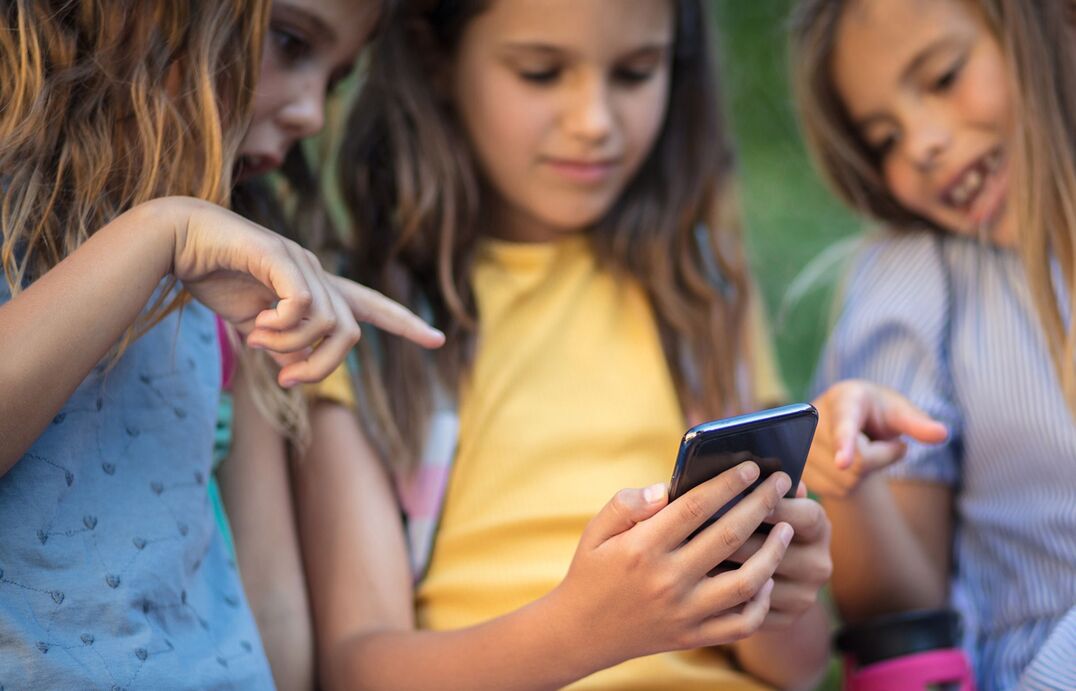The role AI can play in helping children thrive
How children learn at home and in the classroom is constantly changing thanks to the influence of Artificial Intelligence (AI) and products like ChatGPT.

Children fleeing violence at Christmas need your help. Donate and help give a Buddy Bag by 25 December.
In this age of interconnected learning, it's not uncommon for children to encounter various online platforms that request their information. While the data requested may seem minimal, it's a crucial moment for parents to start a conversation about privacy and responsible data sharing.
In today's educational landscape, technology is a vital tool for enhancing learning experiences. As your child encounters new tools, services and programs, including laptops and tablets, they may be prompted to sign up and share personal information.
It's important to recognise that while the data requested by school-approved education tech – also known as edtech - may be minimal compared to other platforms, it sets the stage for future interactions in the digital world.
Privacy is a fundamental right, and even in the digital age, it should be respected. When your child enters personal details on these platforms, they are engaging in a transaction that involves trust.
It's an opportunity to discuss with them the importance of safeguarding their information and being mindful of how it might be used.
Approaching the topic of privacy can be done in an age-appropriate manner. Begin by asking your child about their experiences with the new digital tools. You might say, "I heard you're using some exciting new programs in class. Can you tell me about them?"
Then ask them what information they needed to share to get access to the programs, and what their thoughts are on doing that. You may find that some didn't even pause to consider what personal information they were providing, and the potential risks of that.
To make the concept of privacy relatable, consider using familiar examples. You could say, "Just like we lock our front door to keep our home safe, we also need to be careful about who gets access to our personal information online. It's like having a digital lock to protect your virtual space."
Use this moment to highlight the idea of responsible digital citizenship. Explain that being mindful of what information they share online is a key part of navigating the digital world in a good way.
Encourage them to ask questions such as, "Why is this information needed?" and "How will it be used?" This cultivates a habit of critical thinking about privacy concerns.
While your child will likely experience many new technologies in an educational setting, others will take place outside of school, such as at home or with peers. Whether they’re playing online games or accessing social media, it’s important they understand that the principles you are teaching them about privacy apply equally in these other spaces.
Help your child establish boundaries for online sharing. Discuss the importance of only sharing information that is necessary for the task at hand and avoiding oversharing. Reinforce the idea that it's okay to question and seek your guidance when unsure about sharing certain details.
Stay actively involved in your child's digital experiences. Ask to learn about the platforms they are using and familiarize yourself with the privacy settings. This not only reinforces the importance of privacy but also shows that you are engaged and supportive of their online activities.
As your child embarks on a new school year filled with technological advancements and new edtech, take this opportunity to lay the foundation for a healthy approach to privacy and data sharing.
By initiating open and age-appropriate conversations, you empower your child to become a responsible digital citizen, navigating the digital classroom with confidence and awareness.
When children use new tech in school they often share personal info. It's not much, but it sets the stage for this as an acceptable request.
Privacy is important, even online. When children share info, it's like a trust deal. Talk to them about why it's crucial to protect their info.
Ask about their new digital tools. What info did they enter? Many don't realise the risks of sharing personal stuff.
Explain privacy using everyday examples – like locking the house when you leave.
Teach responsible online behaviour. Encourage questions like "Why is this info needed?" and "How will it be used?" Set limits on sharing and stay involved to show you care about their online activities. This sets the foundation for a smart and safe approach to tech and privacy.
Explore the conversation cards to inspire DigiTalks about privacy and new tech. Download, print and cut out the cards to use with your children.
We know it takes a village to raise a child. Your village could include grandparents, aunts and uncles, family friends, babysitters or cousins - and it's great to share this information with them. Download a PDF version to share the article with ease.

How children learn at home and in the classroom is constantly changing thanks to the influence of Artificial Intelligence (AI) and products like ChatGPT.

Unlocking the power of literacy goes beyond reading and writing – it’s also important to know how to think about this content in order to make sense of the world.

Discovering that your child may be experiencing or engaging in online bullying can stir complex emotions.


